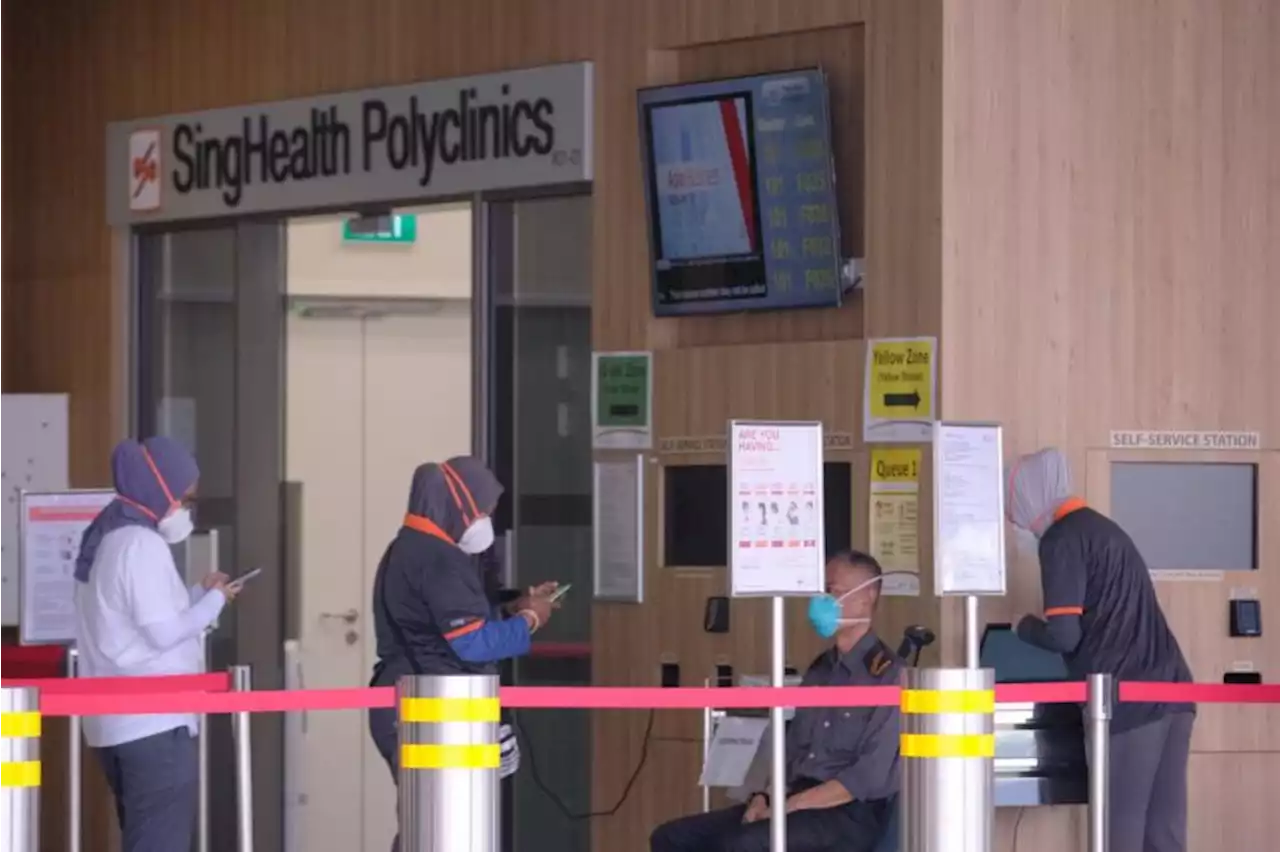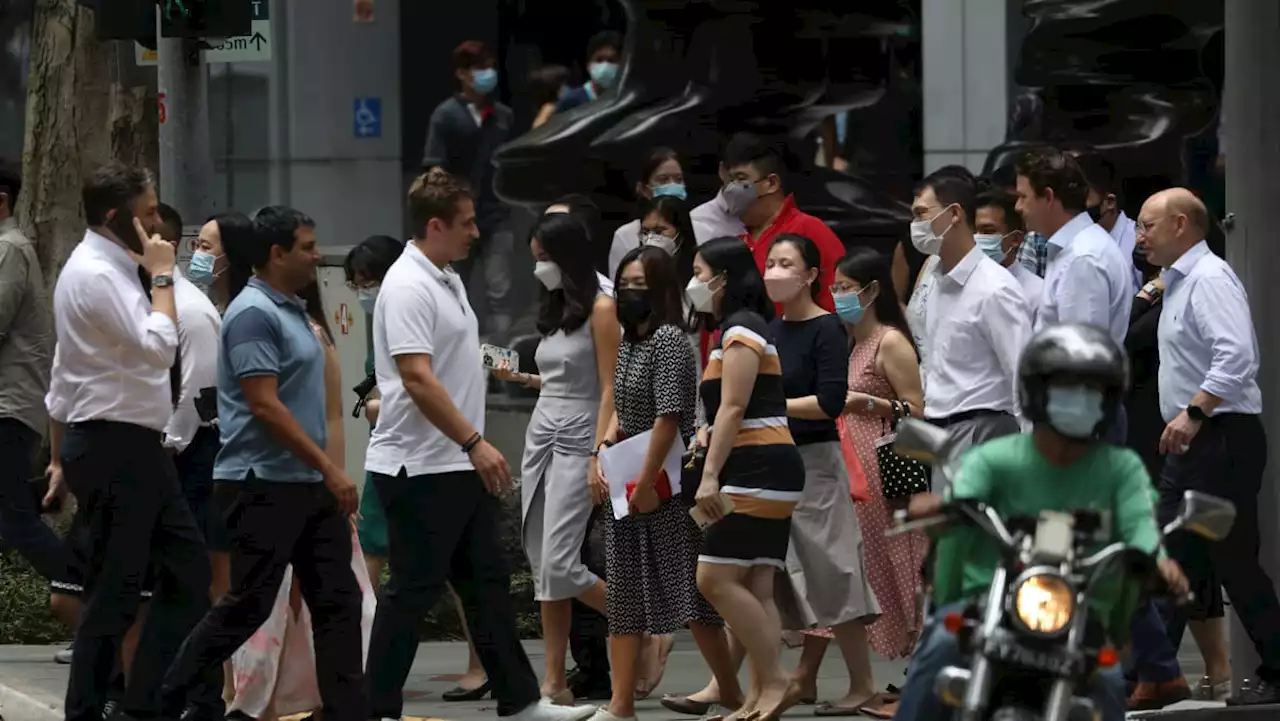SINGAPORE — When Ms Fiona Jia first visited Singapore in 2017, she was at first puzzled to find a mobile phone left unattended on the table at a cafe.
Just as the Chinese national was about to pick it up and pass the phone to the cafe staff for safekeeping, she was stopped by a friend, who informed her that this was a patron’s way of reserving a table.“I was shocked. It’s never something I would ever think of doing in any other country,” said the 34-year-old, who moved to Singapore a year later in 2018.
“I’d never seen a foodcourt like that in India, where it’s all individual restaurants… My colleagues helped me adjust to the hawker culture and taught me about nasi lemak and chicken rice,” said the 39-year-old Indian national who has been in Singapore for six years and works in a medical devices company.
On the other hand, Ms Nur, who works as a manager in the banking industry, does not feel the need to proactively educate her foreign colleagues on local culture as most leave their jobs in a few years, and conversations on local culture may not be of relevance or interest to them. Based on a recent poll by the National Youth Council , only 17 per cent of Singaporean youth feel that locals and foreigners get along well here despite their differences, compared to 38 per cent of foreigners.
Separately, views from foreigners and Singaporeans whom TODAY spoke also reflected some degree of an “us versus them” mentality which has been exacerbated by the economic upheaval brought about by the Covid-19 pandemic in the past two years. Singapore’s non-resident workers went up from 612,200 in 2000 to 1,113,200 by 2010, a rise of more than 80 per cent, as the nation’s robust economic growth, along with a local labour shortage, fuelled demand for foreign workers.
“However, from time to time, when locals feel threatened by foreigners at the workplace, in the labour market, or even when using public space and amenities, their negative sentiments could spike and be amplified by social media postings and chats,” he said. Ms Jia, for instance, said that her friends are mainly expatriates from the United States or Europe as she got to know them through her American husband who is also working in Singapore.
Other foreigners said that since the pandemic started, the slew of Covid-19 curbs have also reduced their opportunity to meet and mingle with Singaporeans through activities such as sports. The council was set up in 2009 to encourage ground-up integration efforts between Singaporeans and newcomers such as permanent residents, naturalised citizens and expats.
Ms Nur, a 28-year-old Singaporean, on why she doesn’t usually strike up meaningful conversations with her foreign colleaguesCompounding the situation is a general reticence among some Singaporeans to proactively build bonds with foreigners in their midst. Singaporeans interviewed by TODAY had mixed views about the question of whether foreigners are “stealing” jobs.
On this, Mr Goutham, the Indian national, said: “There’s a perception that as a foreigner, you need to perform well. Otherwise, you might lose your job and be thrown out of Singapore. That very feeling makes you work a little harder because you need to keep the job."Mr Goutham Devulapally, an Indian national who has been in Singapore for six years.
A 2018 study by the Institute of Policy Studies found that more than six in 10 of the 4,000 Singaporeans and permanent residents surveyed feel that immigrants are not doing enough to integrate into Singapore.Speaking to TODAY, both foreigners and naturalised citizens said that it takes time for them to adapt and adjust to local norms — from language and everyday behaviour to Singapore’s orderly nature.
If assimilation doesn’t come easy for them, developing a sense of belonging and an emotional bond with Singapore is even harder for some. Besides not being able to attend his citizenship ceremony last year due to Covid-19 restrictions, Mr Nitin felt that he would need to participate in various national activities such as attending the National Day Parade and voting in the elections to build a sense of belonging towards Singapore over time.
During the parliamentary debate on the Population White Paper in 2013, Mr Tan Chuan-Jin, who was then the Acting Manpower Minister, said that Singaporeans were facing crowded trains, MRT stations and a lack of beds in hospitals. This was why the Government was tabling the White Paper, so that infrastructure could keep pace with the growth in population, he said.
However, by design, public transport systems are always under stress in any global city due to their dense nature, said Dr Leong.The perception that foreigners are to be blamed for packed trains and buses lingers in some segments of society. “Your mind tells you one thing… but you still get annoyed because there is no breathing room, and you find something else to blame,” said Ms Ng.Job competition aside, there is also a perception among some Singaporeans that their country has become a playground for rich foreigners.
Through his personal interactions, he found that while some foreigner colleagues hold high-paying jobs, live in luxury properties and lead lives that are different from the average Singaporean, they have continued to make an effort to understand the cultures of others. In 2019, just before the pandemic, the number of transactions was also low at 1,000 units due to property cooling measures introduced in the preceding 10 years.
More than half of both citizens and non-citizens believe that interactions with each other — such as through community bonding and individual efforts to improve treatment towards others — would best help Singaporeans integrate with foreigners. Indeed, with the pandemic raising public awareness of the living conditions of lower-skilled migrant workers, some young Singaporeans have stepped forward to reach out to this group of foreigners.
The CMSC has organised several projects that promote interactions between locals and migrant workers, including WeAllEat, where meals from hawker stalls are delivered to migrant worker dormitories around Singapore.
United States Latest News, United States Headlines
Similar News:You can also read news stories similar to this one that we have collected from other news sources.
 The Met Gala returns: A guide to fashion's big nightWho's hosting this year's event on May 2, who's invited and what's the theme?
The Met Gala returns: A guide to fashion's big nightWho's hosting this year's event on May 2, who's invited and what's the theme?
Read more »
 More than 500,000 young Singaporeans to receive S$200 Edusave or PSEA top-upSINGAPORE: About 540,000 Singaporeans aged between seven and 20 in 2022 will each receive a one-off top-up of S$200 to their Edusave account or Post-Secondary Education Account (PSEA) next month. “This top-up is part of the
More than 500,000 young Singaporeans to receive S$200 Edusave or PSEA top-upSINGAPORE: About 540,000 Singaporeans aged between seven and 20 in 2022 will each receive a one-off top-up of S$200 to their Edusave account or Post-Secondary Education Account (PSEA) next month. “This top-up is part of the
Read more »
 New tools being studied, piloted to keep Singaporeans healthy and out of hospital
New tools being studied, piloted to keep Singaporeans healthy and out of hospital
Read more »
 Singaporean man refuses to pay hacker $8,000, finds his photos used in deepfake porn videoAfter picking up a call from an unknown overseas number by accident, a Singaporean man named Owen was horrified to find himself in a porn video — a deepfake one, that is. Refusing to give in to a hacker's demands of $8,000, the 20-year-old wrote in his police report that latter sent the video to the contacts on his mobile...
Singaporean man refuses to pay hacker $8,000, finds his photos used in deepfake porn videoAfter picking up a call from an unknown overseas number by accident, a Singaporean man named Owen was horrified to find himself in a porn video — a deepfake one, that is. Refusing to give in to a hacker's demands of $8,000, the 20-year-old wrote in his police report that latter sent the video to the contacts on his mobile...
Read more »
 17% Of Singapore Residents Would Say “I Love You” After 2 Weeks Of Dating: SurveyYouGov surveyed 1,057 Singapore residents to ask them how long they should date before hitting milestones like getting engaged, going on vacation together, or meeting the parents. And like those surveyed, we had THOUGHTS.
17% Of Singapore Residents Would Say “I Love You” After 2 Weeks Of Dating: SurveyYouGov surveyed 1,057 Singapore residents to ask them how long they should date before hitting milestones like getting engaged, going on vacation together, or meeting the parents. And like those surveyed, we had THOUGHTS.
Read more »
 ‘I love you yaya’: Singaporean woman has surprise reunion with ex-maid of 27 yearsThe tears flowed at a wedding last Saturday (April 23), as a Singaporean woman was reunited with her former domestic helper of almost three decades at her wedding.
‘I love you yaya’: Singaporean woman has surprise reunion with ex-maid of 27 yearsThe tears flowed at a wedding last Saturday (April 23), as a Singaporean woman was reunited with her former domestic helper of almost three decades at her wedding.
Read more »
